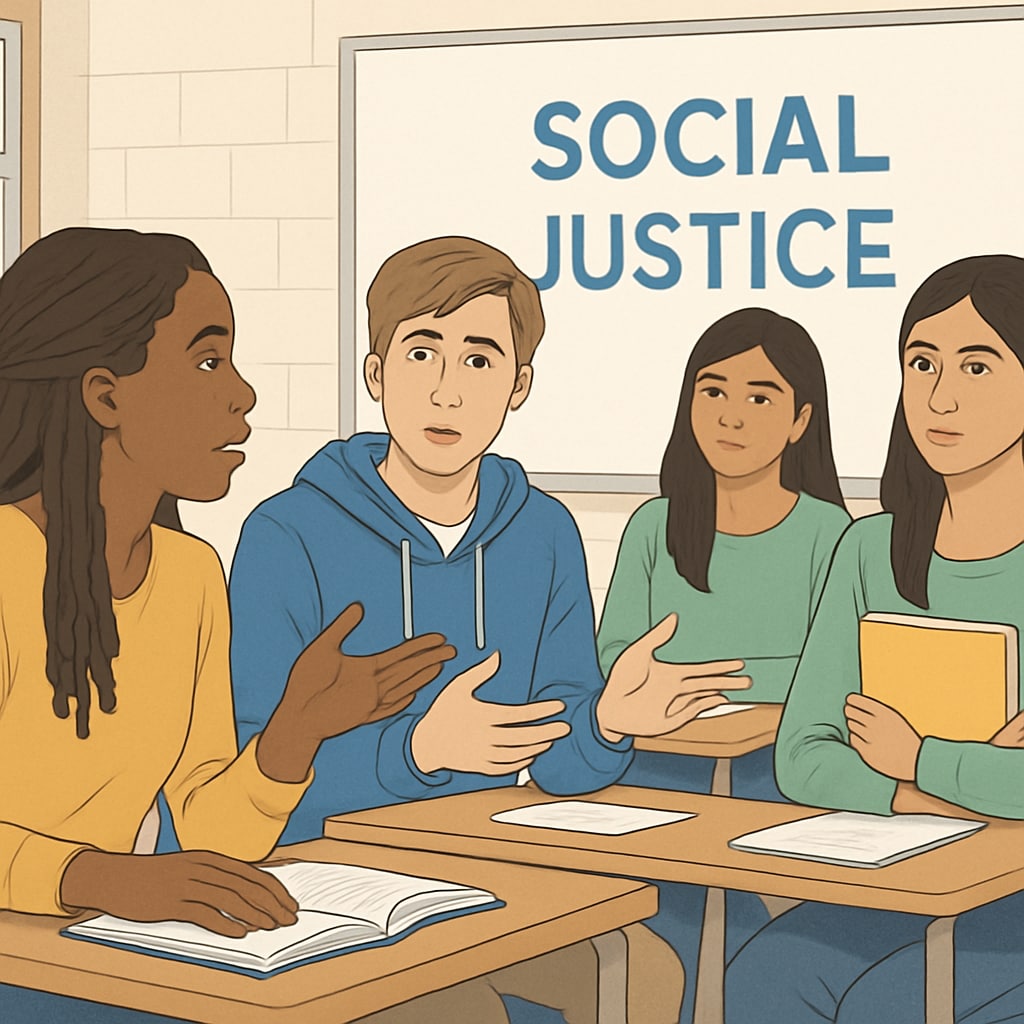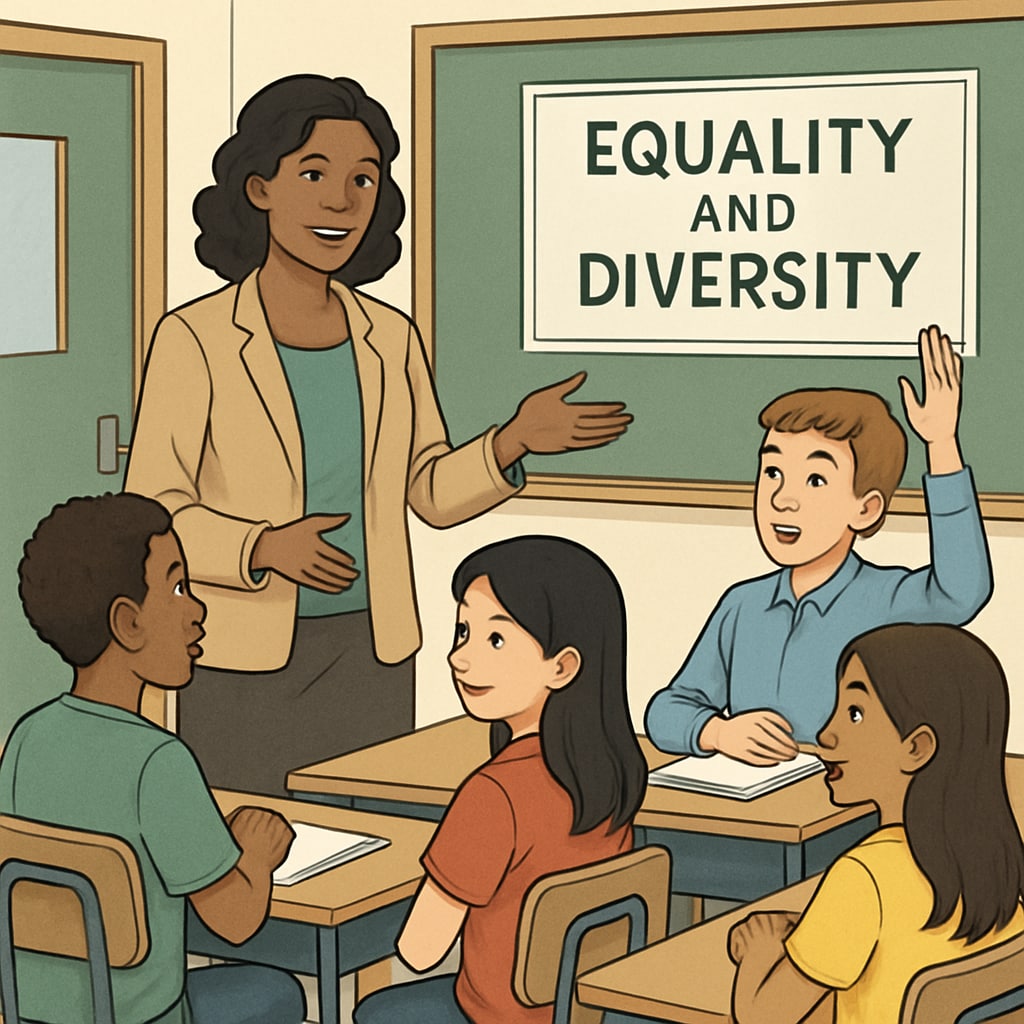Recent research on school wokeness, student perspectives, and its broader implications has shed light on how young minds perceive political ideologies influencing their education. This study highlights the rise of “wokeness”—a term often associated with heightened sensitivity to social justice and equity—in K12 schools and its impact on students’ experiences. It raises questions about whether schools are becoming platforms for ideological narratives rather than places for balanced learning. This article delves into the research findings, analyzing how students view “wokeness” in schools and the challenges it presents.

Understanding “Wokeness” in School Environments
Before discussing the findings, it is essential to define “wokeness” in the context of schools. Originally rooted in social movements, “wokeness” refers to a heightened awareness of social and political inequalities. In educational settings, it often manifests as curriculum changes, diversity initiatives, and the promotion of equity and inclusion. While these efforts aim to create a more inclusive environment, critics argue that they may sometimes prioritize specific narratives over a balanced exploration of complex issues.
For students, “wokeness” in schools can be a double-edged sword. On one hand, it introduces them to critical perspectives on history, society, and identity. On the other hand, some students feel that these ideologies overshadow other critical aspects of education, such as academic rigor and diverse viewpoints.
Students’ Perspectives on School Wokeness
The study revealed mixed feelings among students regarding the rise of “wokeness” in their schools. According to the research:
- Positive Views: Many students appreciated efforts to address social inequalities and create inclusive school environments. They felt empowered by discussions on race, gender, and identity, which encouraged critical thinking and empathy.
- Concerns: Some students expressed discomfort, feeling that the emphasis on “wokeness” created a polarized atmosphere. They noted that dissenting opinions were often dismissed, leading to a lack of open dialogue.
- Impact on Academics: A portion of students believed that the focus on social justice sometimes detracted from core academic subjects, leaving them less prepared for standardized tests and college admissions.
These findings suggest that while “wokeness” can foster awareness, it must be implemented carefully to avoid alienating students or compromising educational quality.

Balancing Ideology and Education
One of the primary challenges highlighted by the study is the need to maintain balance in education. Schools have a responsibility to encourage critical thinking, expose students to diverse perspectives, and equip them with skills for the future. However, when political ideologies dominate the curriculum, there is a risk of creating an environment where certain viewpoints are promoted at the expense of others.
To address these concerns, educators and policymakers can consider the following strategies:
- Encourage Open Dialogue: Create safe spaces for students to express diverse opinions without fear of judgment or exclusion.
- Focus on Academic Excellence: Ensure that social justice topics complement, rather than overshadow, core academic subjects.
- Provide Teacher Training: Equip teachers with tools to navigate sensitive topics effectively and foster balanced discussions.
By adopting these measures, schools can promote a culture of inclusivity while preserving the integrity of education.
The Broader Implications for K12 Education
The findings of this study have broader implications for the K12 education system. As society becomes increasingly polarized, schools are not immune to these tensions. The way “wokeness” is approached in classrooms can influence students’ worldviews, interpersonal skills, and academic success.
It is crucial for schools to recognize their role in shaping future citizens. While addressing social justice issues is important, it should not come at the cost of academic rigor or intellectual diversity. Striking the right balance will ensure that students are well-prepared to navigate the complexities of the modern world.
In conclusion, this research on school wokeness, student perspectives, and its impact provides valuable insights into the evolving landscape of education. By understanding students’ experiences and concerns, educators can create environments that are both inclusive and academically enriching. As schools continue to grapple with these challenges, fostering open dialogue and maintaining balance will be key to their success.


